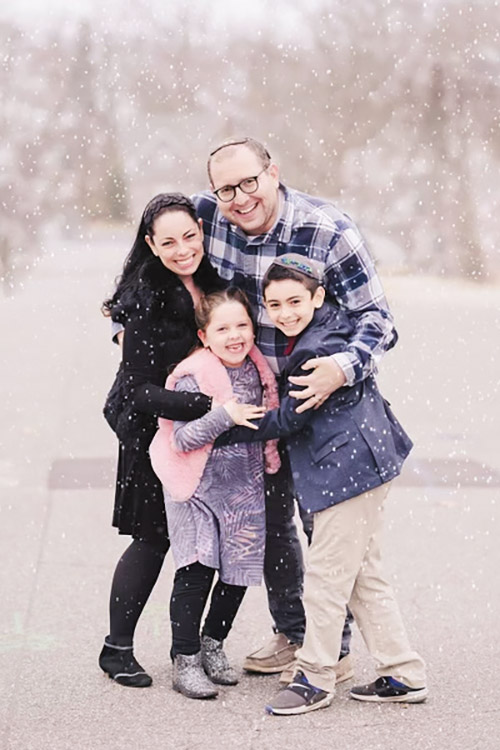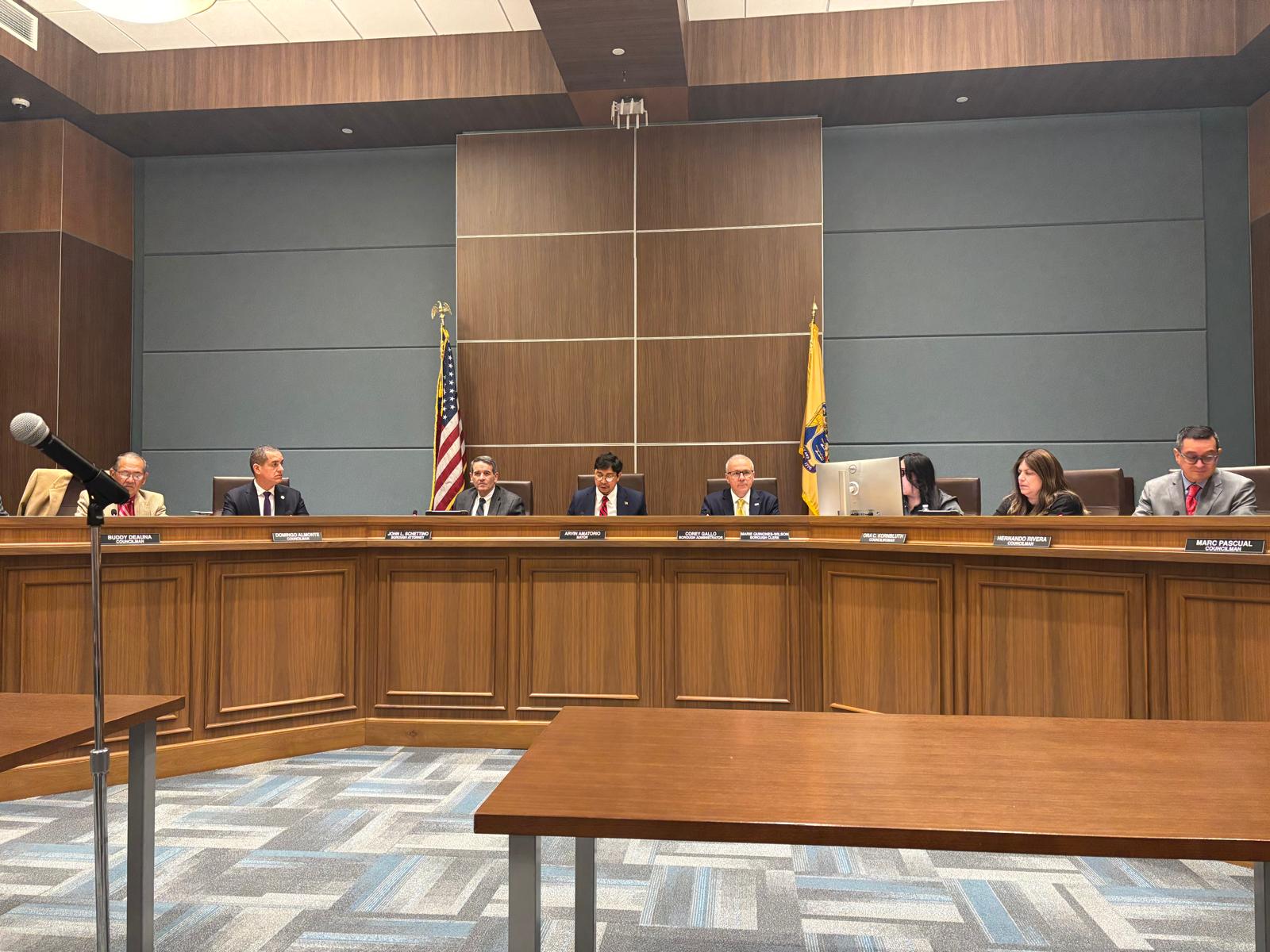
This week, April 19, was the first anniversary of my return home from the hospital, after being in the hospital for 32 days and being on a ventilator for 22 days. As I understand it now, all of you in the Jewish community were a big part in the reason I survived—with all of your prayers and campaigns for מצוות.
But returning home was just the beginning of a long-haul challenge. I’ve been faced with many obstacles, baruch Hashem none life-threatening, that have made this year difficult. (Obviously, this statement is not meant to belittle anyone else’s struggles; just sharing my perspective.) I’ve struggled through four different therapies, while only completing two. The remaining two therapies (psychotherapy and physical therapy) are definitely the hardest. I lost hearing from COVID, so I had a cochlear implant surgery and can now hear only when the external device is magnetically connected to my head. I’ve fallen from loss of balance, I’ve forgotten names, I’ve forgotten memories from my childhood, I’ve even forgotten important occasions in my family. This memory loss came due to brain damage from hypoxia that doctors are still working to fix.
But with all this, every morning, I am happy to be alive. When I daven, it’s still מכלכל חיים in my עמידה that makes me tear, every time. So thank you all for your roles in keeping me alive.
After a life-changing trauma, it is common for one to search for reasons. A reason for why this happened to me? A reason for why I lived and others didn’t? A reason why I was given another chance?
While these thoughts are in my head, I have been searching for reasons for my actions. One instance, a few weeks after I came home, and was well enough to make a ברכת הגומל, a teacher from my TABC days, Rabbi Jachter, reached out to me to share with me an opportunity for a rare ברכה. As soon as he mentioned it, I remembered the Gemara from Daf Yomi- Brachot 54a:
The Gemara asks: For a miracle that occurs for the multitudes we recite a blessing, but for a miracle that befalls an individual person we do not recite a blessing? Wasn’t there an incident where a certain man was walking along the right side of the Euphrates River when a lion attacked him, a miracle was performed for him, and he was rescued? He came before Rava, who said to him: Every time that you arrive there, to the site of the miracle, recite the blessing, “ברוך…שעשה לי נס במקום הזה”
Rabbi Jachter informed me, based on a discussion with Rav Schachter, that the next time I pass Hackensack Hospital, I should make this ברכה.
With the stage of life I was in, I, of course, went searching for reason. What stood out to me was that this blessing was made in sight of the location where the miracle occurred. No other blessing is based on a location. For example, the blessing for the sukkah is only said when sitting, eating or learning in the sukkah, not upon seeing the sukkah.
This led me to an even deeper question of the word מקום. This word can be used to mean location or Hashem. So I looked through the Tanach to find answers. The first possibility of Makom meaning more than just place arose regarding Avraham Avinu in Bereishit 22:4. He went to find the location for the עקידה, and on the third day, he looked up and saw the Makom from afar. Rashi there says that a cloud pillar was attached to Har HaMoriah, signaling Avraham’s destination.
The second possibility is found with Yaakov Avinu in Bereishit 28:11, where the pasuk says ויפגע במקום—literally meaning he reached the place. Many commentators, including Rashi, and the Gemara (Brachot 26b, Ta’anit 7b, Sotah 14a and Sanhedrin 95b) state that this is a source for the tefillah of Maariv—that these words mean he touched Hashem with his prayers. In fact, Rashi quotes a Midrash here that says that the mountain moved close to Yaakov because, while he was on his way, he realized that he passed the mountain where his forefathers prayed and he hadn’t stopped to pray there—so a miracle occurred and the mountain came to him. However, the Ibn Ezra here writes that nowhere in the Tanach does the Makom mean Hashem. He states emphatically that it should be understood as he reached the location.
The third possibility is with regard to Moshe Rabbeinu in Shemot 3:5, where Hashem tells him, “Do not come closer. Remove your sandals from your feet, because the מקום on which you stand is holy ground.” This example was where Hashem revealed Himself through the burning bush. However, this location, unlike the previous two examples, is not recorded or remembered like Har HaMoriah, so it could only mean that it was due to Hashem’s presence that the Makom was holy.
In light of these three possibilities, a trend became clear. The term מקום is used in Tanach not as a synonym for Hashem, but rather as a location where a miracle occurred, and Hashem revealed Himself.
With this in mind, I understood why we say ברוך המקום ברוך הוא at the Seder—because we are clearly remembering the exodus from Egypt. But why do we use the term Makom upon leaving a mourner’s house?
To help answer this question, I went to the Shulchan Aruch, Orach Chayim 218:4, where the halacha of “ברוך…שעשה לי נס במקום הזה” is cited, and noted that at the end of 218:6, Rav Moshe Isserles quotes the Avudraham and says:
י»א דה»ה אם רואה האדם שנעשה לו הנס מברך עליו כמו שמברך על המקום שנעשה בו הנס.
“There are those who say that if you see a man for whom a miracle was performed, you make the blessing of ברוך…שעשה לו נס במקום הזה.”
This means that the blessing is not dependent on location, but rather dependent on the person. And the answer for why can be inferred from the sources above: Hashem made His presence known with that miracle.
But the last remaining question, of using the term Makom at a mourner’s house, can be answered in only one way. A mourner, unfortunately, feels the furthest from Hashem, as he/she questions why this happened to the person who died. They feel like the person was taken too soon, even the elderly—or the person had a chance to recover, even if the person was in pain. These questions can lead a person to question “Where is Hashem? Why has He abandoned me?” And so, upon departure, it is the responsibility of the community to remind the mourner that He is always with them. That may also be a reason why the phrase is always mentioned in plural, אתכם, even if only one person is in mourning. For it is not just the mourner who requires comfort, but Hashem is there to comfort and be comforted, as another member of כלל ישראל is taken from our world.
And so, on this one-year anniversary, I see my life as an opportunity to realize the presence of Hashem in everything I do. It’s an opportunity to appreciate life, with all its struggles, as an opportunity to recognize all who have helped get here, as messengers of Hashem.
So my place now is to thank you, the messengers of Hashem, for giving me another opportunity to see His glory and rejoice in His majesty.
By Michael Goldsmith













